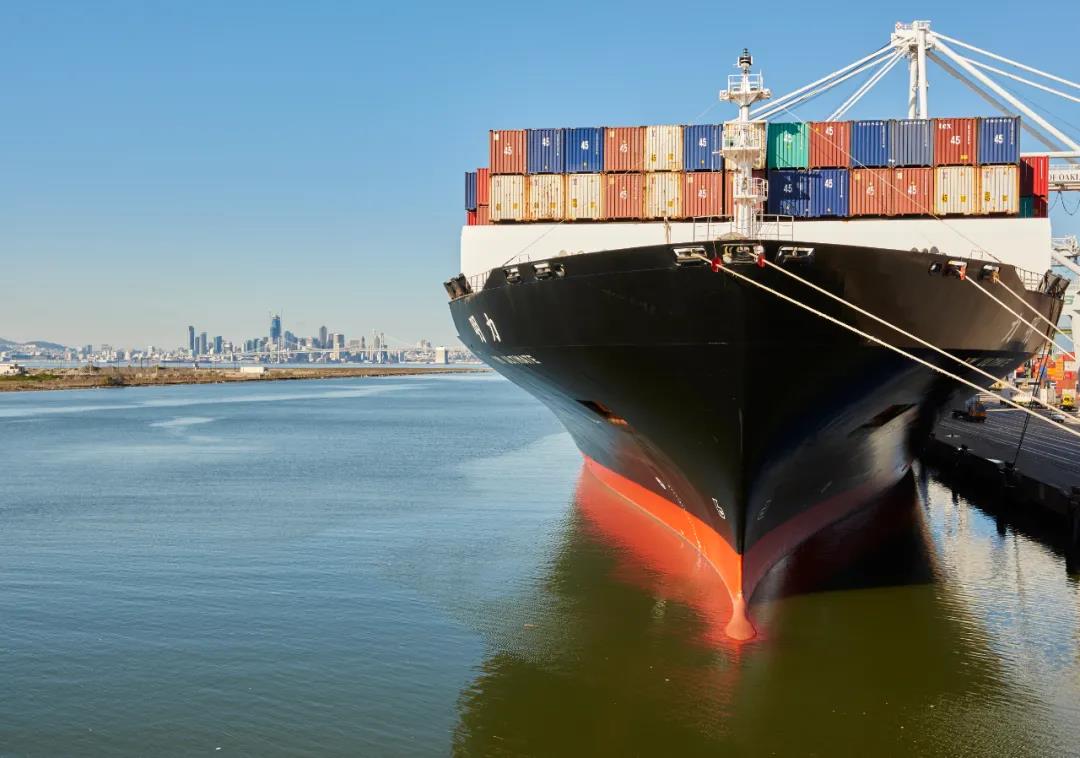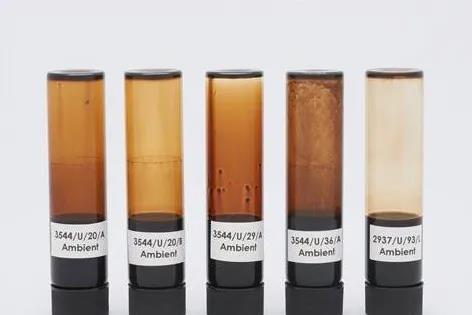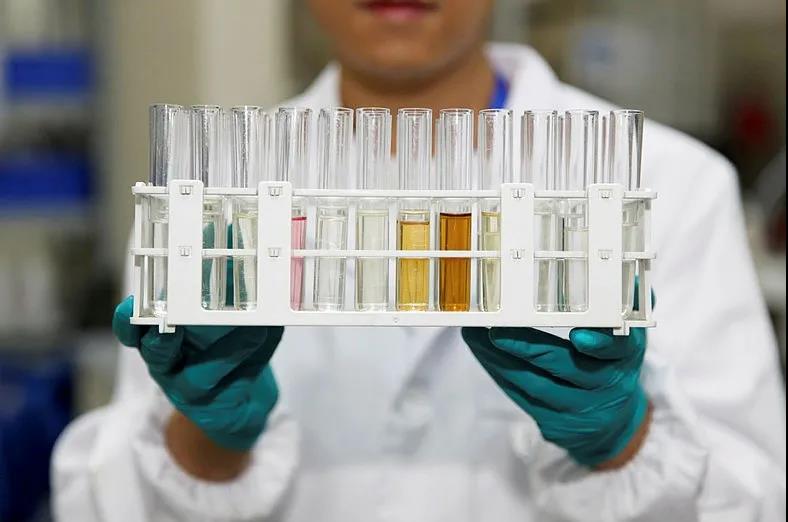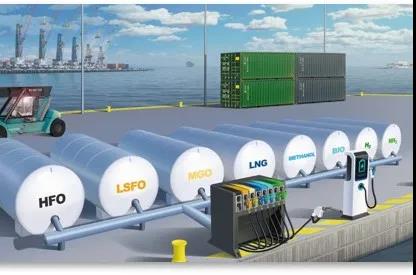The long-term environmental goals of the shipping industry are driving the industry's quest for newer, cleaner fuels. However, while we still have 29 years to reach the overall reduction target of at least 50% reduction in total greenhouse gas emissions by 2050 from 2008 emissions, for current progress, We are running out of time. Engine technologies for many candidate fuels have not even reached the pilot stage for commercial shipping, but due to the considerable longevity of ships, reliable fuel technology routes must be routed for ships that will continue to operate through 2050. At the same time, the long development cycle for cylinder oils also presents challenges.

The industry generally agrees that, despite the rapid pace of change in some areas, the development of lubricants is often time-consuming. That's because we have to take the time to understand the effects of new fuels when they are put into service. Differences in testing Laboratory testing is not sufficient to develop a suitable engine cylinder Oil Additive program. Obtaining real working engine information is an important part of the lubricant and additive development process. The International Association of Internal Combustion Engines (CIMAC) released the "Guidelines for LNG Engine Lubricants" earlier this year. The release of the guidelines was 5 years later than the time when the first relevant marine engines were put into service. Such a typical time difference just shows that The lag between the development of lubricant requirements and the market adoption of new fuels was investigated.

This time gap is also exacerbated by the lack of users who volunteered to participate in the trial. It is understandable that many shipowners and operators are reluctant to allow their ships to be trial products for new lubrication technologies. But with the industry under pressure to develop lubricant options for multiple alternative fuels, I hope that will change. I hope shipowners can actively face such challenges. On the topic of cooperation, we can have a lot of discussion. I believe shipowners, engine designers, fuel suppliers and lubricant companies can work together to gain insight into engine performance, condition and the impact of new fuels. It takes time to gain more than just the operational experience of the ship. In the years leading up to 2020, the 0.5% sulphur limit in marine fuel oil was implemented globally, the biggest change to date on marine fuel quality. It was also during this period that we learned about other challenges faced by ships in adopting new fuels. ▪ First is the issue of fuel access In 2017, there were virtually no very low sulfur fuel oils (VLSFO) on the market. Even at the end of 2019, the supply situation of ultra-low sulfur fuel oil is still unclear. ▪ During the engine testing phase, we observed a second challenge: Actual test results using VLSFO do not always agree with laboratory simulation test results with small dimensions during development. These engine tests are designed to help us further confirm the results of earlier simulation tests. The simulations were supposed to help us determine the composition of the deposits and the effects of antioxidants, which would guide our formulation development. However, the results of some simulation tests did not agree with the results of the engine tests.

So we have to revisit the simulation experiment. In some cases, we modified the simulation tests, and in other cases, we had to introduce new tests to better reflect the real performance of the formulation's performance. As you can see, developing lubricants and additives for new fuels requires not only a significant investment of time in actual operational testing, but also ensuring that laboratory testing can correctly assess the properties of the formulation. Based on our experience developing VLSFO adaptation oils, we believe that similar challenges will be encountered when developing lubricants for other fuels. Early stages of development include more iterations. It will take time to understand the interactions between lubricants and fuels, and how existing simulations relate to real engine operating conditions. We may need to adjust existing simulations or design new ones to strengthen this association. It is crucial to understand the requirements of the main alternative fuels on the performance of lubricating oil, including the characteristics of the fuel itself, the corresponding engine adjustment and the impact on its operation. Only on the basis of comprehensively understanding all the information can we understand the performance of the lubricating oil. requirements. Take methanol as an example Like many alternative fuels, methanol requires a small amount of pilot fuel to control combustion, which will have an impact on emissions and engine conditions. And like other fuels, methanol has the potential to spontaneously ignite. Spontaneous combustion results in less efficient combustion, more fuel consumption, and more emissions. In addition, it can create hot spots inside the cylinder and on the piston, which can create damaging deposits. These inherent properties of methanol fuel mean that engine developers need to adjust engine design. To manage the different methanol and pilot fuel injection pressures, a completely new nozzle design is required. In addition, in order to keep NOx emissions below the IMO Stage III limits, exhaust aftertreatment such as Selective Catalytic Reduction (SCR), Exhaust Gas Recirculation (EGR) or water injection (lowering the combustion temperature) is required.

Adjustments to these characteristics and engine design have an impact on its operation, which is why we need not only laboratory tests, but also engine knowledge. For example, one of the effects of methanol fuel on engines is the difference in flame propagation compared to conventional fuels. Diesel combustion produces a more consistent flame in the cylinder, while methanol combustion produces an inconsistent flame. It lasts longer and doesn't react as uniformly as diesel. This unpredictable flame causes cylinder piston sections to be exposed to higher temperatures, increasing deposits that can cause engine wear. From these three aspects, methanol obviously puts forward special requirements for cylinder oil. Due to the risk of self-ignition and flame propagation, the cylinder oil must be able to withstand relatively high cylinder temperatures without degrading lubrication performance. Since deposits tend to form on hot spots, lubricating oils require enhanced wear protection to prevent premature cylinder failure. Additional challenges may arise in the future as experience is gained in operating the engine. R&D challenges All of the major candidates for alternative fuels present challenges to the development of lubricating products. We definitely need new additive technologies to power the use of these fuels. It is safe to say that there is no one-size-fits-all solution. Dedicated oil is an inevitable development route. If the marine industry is to address the challenges posed by alternative fuels without major changes to how engine and cylinder conditions are managed, it must act quickly. While the development of lubricants is inherently challenging – especially the lengthy development cycles based on experience with use – in other areas, all industry stakeholders face the same issues. Among them, risk assessment deserves emphasis. A very rigorous assessment of the potential risks is required before testing even the smallest amount of fuel in the laboratory. What do we need to do when testing? What do we need to pay attention to? For example, what is the difference between a lubricating oil contaminated with ammonia and a lubricating oil contaminated with residual oil? These tests are tedious, but every stakeholder in the industry cannot bypass them. Our point of view Cooperation can speed up the whole process. Just as shipowners can help speed up time-to-market for new lubricants by providing a test bed, so can other industry players. If we work together to understand alternative fuels and their associated risks, this will allow the shipping industry to conduct field testing of new lubricants faster. These discussions, as well as the cylinder status reflected in the tests of related technical solutions, are crucial for ships to use alternative fuels as early as possible.

![]() January 29, 2022
January 29, 2022







